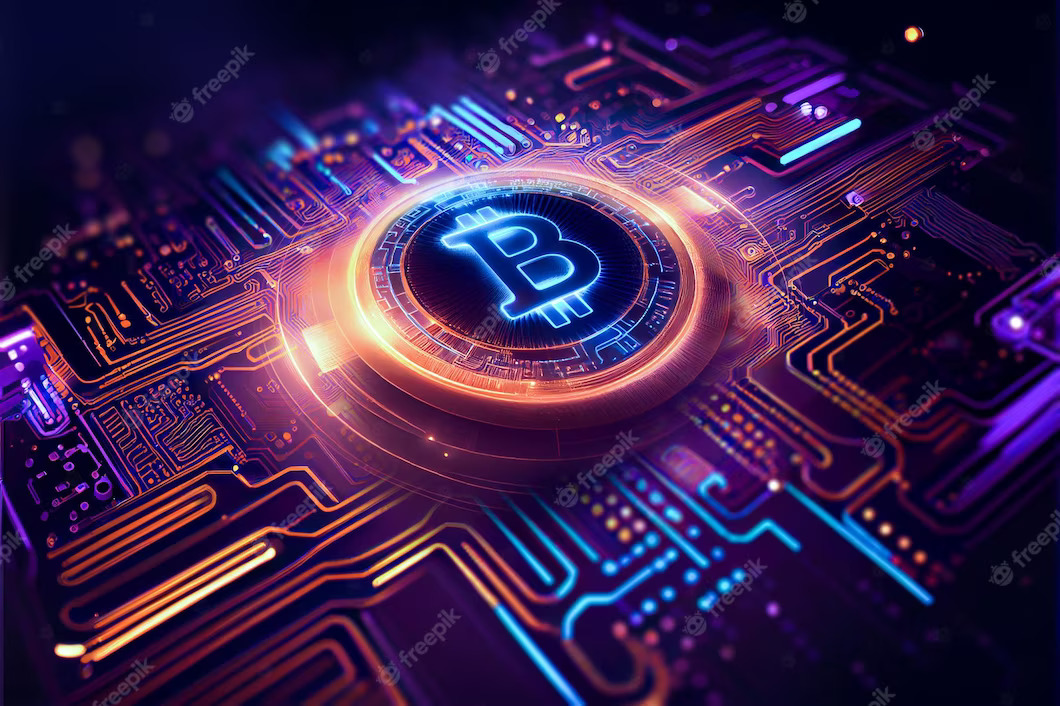Bitcoin’s Exciting Foray into the World of Esports
Understanding Bitcoin and Esports
The worlds of Bitcoin and esports have collided in recent years, creating an exciting new landscape for both industries. To truly appreciate the impact of their convergence, it is important to understand the fundamentals of both Bitcoin and esports.
What is Bitcoin?
Bitcoin is a decentralized digital currency that was invented in 2008 by an unknown person or group of people using the name Satoshi Nakamoto. Unlike traditional currencies, such as the US dollar or the Euro, Bitcoin operates without a central bank or government authority. Instead, it relies on a peer-to-peer network and a technology called blockchain to enable secure and transparent transactions.
The rise of Bitcoin has been remarkable, with its value experiencing significant volatility and garnering attention from investors, technologists, and everyday users alike. Its ability to facilitate fast and borderless transactions has made it an attractive option for individuals and businesses around the world.
Furthermore, the underlying technology of Bitcoin, known as blockchain, has sparked interest beyond the realm of digital currency. Blockchain has the potential to revolutionize various industries, including finance, supply chain management, and even voting systems. Its decentralized and transparent nature makes it a promising solution for enhancing security and efficiency in many areas of society.
The Rise of Esports
Esports, short for electronic sports, refers to competitive video gaming. It has grown into a global phenomenon, attracting millions of viewers and generating billions of dollars in revenue each year. Esports tournaments showcase professional gamers competing in popular multiplayer titles, such as League of Legends, Counter-Strike: Global Offensive, and Dota 2.
With its rapid growth, esports has become a mainstream form of entertainment, capturing the attention of sponsors, advertisers, and enthusiasts worldwide. The accessibility and inclusivity of esports have made it popular among a diverse range of audiences, from casual gamers to dedicated fans.
Esports has also created new career opportunities for individuals passionate about gaming. Professional gamers now have the chance to earn a living by competing in tournaments, signing sponsorship deals, and streaming their gameplay on platforms like Twitch. Additionally, the industry has opened doors for various roles, such as coaches, analysts, and event organizers, who contribute to the success and growth of esports.
Moreover, the impact of esports extends beyond the gaming community. It has become a cultural phenomenon, influencing fashion, music, and even traditional sports. Esports events are now held in large arenas, attracting massive crowds and creating an electric atmosphere similar to that of traditional sporting events.
The convergence of Bitcoin and esports has resulted in exciting new possibilities. Bitcoin has found its way into the esports ecosystem, with some organizations accepting Bitcoin payments for merchandise, event tickets, and even player salaries. This integration not only showcases the versatility of Bitcoin but also highlights the forward-thinking nature of the esports industry.
Furthermore, blockchain technology, the backbone of Bitcoin, has the potential to revolutionize the esports landscape. It can enhance the security and transparency of transactions within the industry, ensuring fair prize distributions and protecting the intellectual property rights of players and content creators.
In conclusion, the collision of Bitcoin and esports has created a dynamic and innovative space where digital currency and competitive gaming intersect. As both industries continue to evolve, the possibilities for growth and collaboration are endless. Whether it’s the adoption of Bitcoin in esports or the integration of blockchain technology, this convergence represents a promising future for both Bitcoin enthusiasts and esports enthusiasts alike.
The Intersection of Bitcoin and Esports

The intersection of Bitcoin and esports has opened doors for new opportunities and innovations within the industry. Bitcoin’s unique attributes make it an ideal fit for the esports ecosystem, providing benefits to players, fans, and organizers alike.
As the popularity of esports continues to soar, the integration of Bitcoin has become increasingly prevalent. This digital currency has revolutionized the way payments and transactions are conducted in the gaming world, offering a seamless and secure solution for in-game purchases and cross-border transfers.
While Bitcoin’s penetration into the world of Esports is capturing headlines, it is also important to recognize the emergence of advanced trading mechanisms. The increasing trust in quantum AI trading technology has allowed investors to forecast market trends with unprecedented accuracy.
This integration of quantum computing with artificial intelligence has not only revolutionized the trading landscape but also created new opportunities for investors in the dynamic world of Esports and cryptocurrency. As Esports and Bitcoin continue to evolve symbiotically, the trust in Quantum AI becomes an underlying theme of success and innovation.
How Bitcoin is Used in Esports
One of the most significant ways Bitcoin is used in esports is for payments and transactions. Bitcoin allows for fast and secure transfers of funds, eliminating the need for traditional banking systems and reducing transaction fees. This is especially beneficial for international transfers, where traditional methods can be costly and time-consuming.
Imagine a scenario where a professional esports player from South Korea wins a tournament in the United States. In the past, receiving prize money would involve a lengthy process of wire transfers and currency conversions, often resulting in delays and additional fees. With Bitcoin, the player can receive their winnings almost instantly, without the hassle of dealing with multiple intermediaries.
In addition to payments, Bitcoin is also used for in-game purchases, such as virtual items and digital collectibles. This seamless integration of Bitcoin into gaming platforms enables players to enhance their gaming experience and trade valuable assets in a decentralized manner.
For example, imagine a popular multiplayer online battle arena (MOBA) game where players can purchase unique character skins using Bitcoin. These skins not only enhance the visual appeal of the characters but also hold value in the gaming community. Through the use of Bitcoin, players can easily buy, sell, and trade these virtual items, creating a vibrant marketplace within the game.
The Benefits of Bitcoin in Esports
The use of Bitcoin in esports brings several benefits to the industry. Firstly, the decentralized nature of Bitcoin ensures greater financial autonomy for players, reducing their dependence on intermediaries and potentially enabling greater earning potential. This opens up new possibilities for aspiring esports athletes, who may have previously been limited by financial constraints.
Furthermore, the elimination of geographical barriers facilitates global participation in esports, creating opportunities for players from all corners of the world. With Bitcoin, players can compete in tournaments and join teams regardless of their location, breaking down the traditional limitations imposed by physical borders.
Moreover, the transparency and immutability of the blockchain offer increased security and integrity for esports transactions. Blockchain technology prevents fraud and tampering, creating an environment of trust and fairness that is crucial in competitive gaming. Players can have confidence in the legitimacy of prize money distributions, ensuring that their hard-earned rewards are protected.
Additionally, the integration of Bitcoin into esports can foster a sense of community and engagement among fans. Through the use of Bitcoin, fans can support their favorite teams and players by purchasing merchandise, accessing exclusive content, or even crowdfunding tournaments. This direct interaction between fans and the esports ecosystem strengthens the bond and enhances the overall experience for all parties involved.
In conclusion, the intersection of Bitcoin and esports has brought about numerous advantages, revolutionizing the way payments and transactions are conducted within the industry. From faster and more secure transfers to increased financial autonomy for players, the integration of Bitcoin has proven to be a game-changer in the world of esports.
Case Studies: Bitcoin in Esports
Several case studies highlight the increasing presence of Bitcoin in the esports landscape, showcasing its potential to revolutionize the industry.
Bitcoin Sponsorships in Esports
Major companies within the cryptocurrency space have recognized the value of esports as a marketing tool and have sponsored esports teams and events using Bitcoin. This form of sponsorship not only brings financial support to esports organizations but also exposes Bitcoin to a wider audience, contributing to its mainstream adoption.
Esports Tournaments with Bitcoin Prizes
Bitcoin is being utilized as a prize pool in various esports tournaments, further solidifying its place within the industry. These tournaments incentivize players to compete at the highest level and provide an avenue for them to earn Bitcoin directly through skill and dedication.
The Future of Bitcoin in Esports
The exciting journey of Bitcoin in the world of esports has only just begun. As both industries continue to evolve and innovate, the future holds immense potential for further integration and growth.
Potential Developments and Innovations
Looking ahead, we can expect the development of specialized platforms and marketplaces that cater specifically to the intersection of Bitcoin and esports. These platforms will empower players to monetize their skills and enable fans to support their favorite teams and players directly through Bitcoin transactions.
Moreover, advancements in blockchain technology may introduce new solutions for esports governance, anti-doping mechanisms, and even fan engagement. The integration of smart contracts and decentralized applications within the esports ecosystem could revolutionize how tournaments are organized and how revenue is distributed.
Challenges and Opportunities Ahead
While the potential benefits of Bitcoin in esports are undeniable, there are still challenges to overcome. Scalability and network congestion issues within the Bitcoin network can limit its wider adoption in fast-paced esports environments. However, ongoing efforts to address these issues, such as the development of layer two solutions, provide hope for a more seamless integration.
Additionally, regulatory uncertainties surrounding cryptocurrencies and esports can pose obstacles to widespread adoption. Clear and favorable regulations will be essential to foster a safe and supportive environment for the growth of Bitcoin in esports.
As Bitcoin continues to shape the way we transact and interact with digital assets, its presence in the world of esports will undoubtedly bring new dimensions to the industry. The exciting fusion of these two dynamic fields has introduced endless possibilities, and we are only beginning to scratch the surface of their true potential.

















